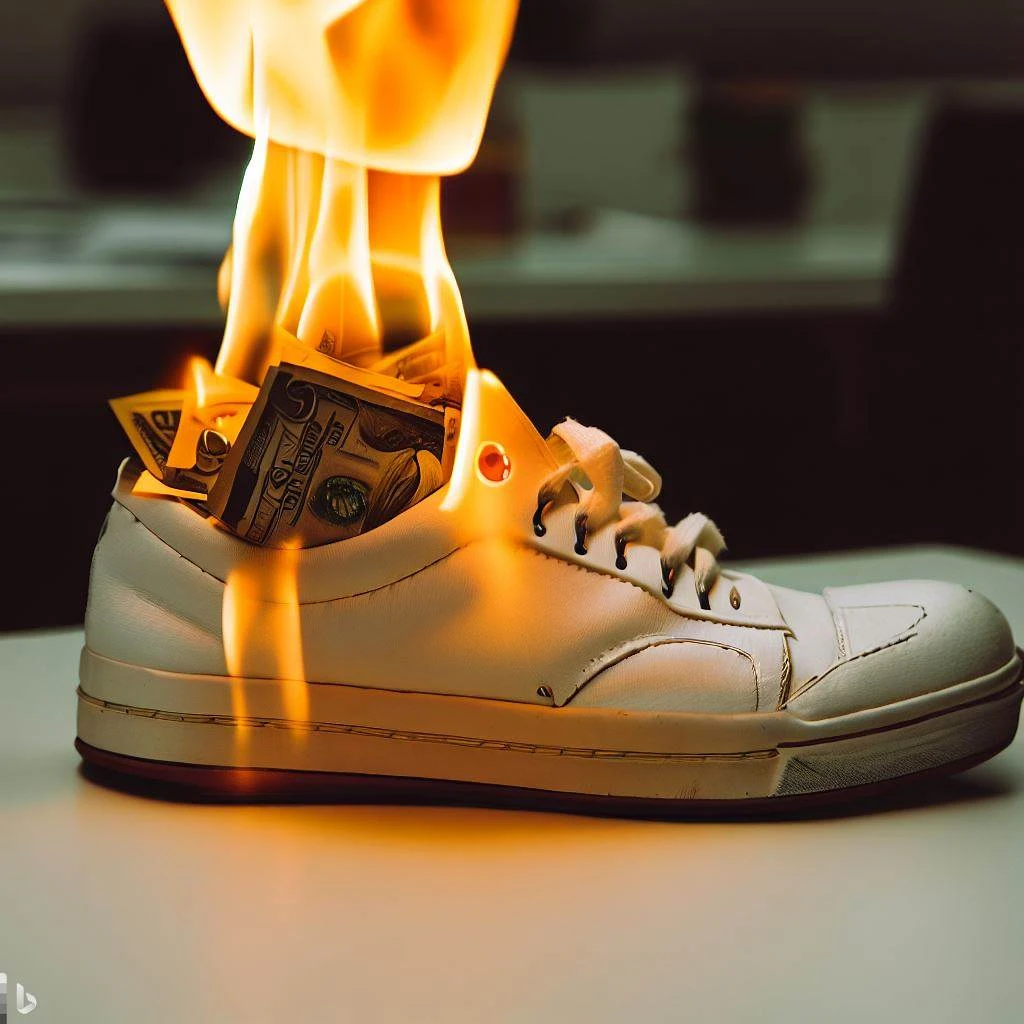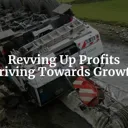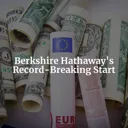Tags: history
This fanpage is not officially affiliated with Berkshire Hathaway: Disclaimer
Introduction
In this article, we will analyze Berkshire Hathaway's worst investment mistake and what it learned from it. Berkshire Hathaway is a multinational conglomerate led by Warren Buffett, one of the most successful investors of all time. Buffett is known for his value investing philosophy, which involves buying high-quality businesses at reasonable prices and holding them for the long term.

One of Buffett's most praised qualities is his willingness to admit his errors and share his lessons with his shareholders and the public. However, there is one mistake that he has repeatedly called his "most gruesome" and his "worst": buying Dexter Shoe, a Maine-based shoemaker, in 1993.
In this article, we will examine how and why Buffett made this costly error, what were its consequences for Berkshire Hathaway and its shareholders, and what were the key takeaways that Buffett derived from this experience. We will argue that Berkshire Hathaway's acquisition of Dexter Shoe was a result of overestimating its competitive advantage and paying with its own stock, but that it also taught valuable lessons about value investing and capital allocation.
The Dexter Shoe deal
In 1993, Berkshire Hathaway bought Dexter Shoe, a Maine-based shoemaker, for $433 million worth of Class A shares. The deal was announced as a stock-for-stock merger, meaning that Berkshire Hathaway exchanged its own shares for those of Dexter Shoe. At the time, Berkshire Hathaway's stock was trading at around $17,000 per share, while Dexter Shoe had annual sales of about $250 million and net income of about $40 million.
Warren Buffett, the CEO and chairman of Berkshire Hathaway, praised Dexter Shoe as a "business jewel" that had a strong competitive advantage in the shoe industry. He said that Dexter Shoe was one of the best-managed companies he had ever seen, and that he expected it to continue growing and earning high returns on capital. He also defended his decision to use Berkshire Hathaway stock to pay for the acquisition, saying that it was a "sound" choice that reflected his confidence in both companies.
However, Buffett soon realized that he had made a costly mistake. Dexter Shoe faced intense competition from low-cost foreign producers, especially from China and Brazil, that eroded its market share and profitability. Despite efforts to source more shoes internationally and cut costs domestically,
Dexter Shoe could not keep up with the changing industry dynamics. Berkshire Hathaway's shoe profits plummeted from $85 million in 1994 to -$46 million in 2001, largely due to losses at Dexter Shoe.
The consequences of the mistake
The Dexter Shoe deal turned out to be a colossal blunder for Berkshire Hathaway, as it squandered a fortune in stock to buy a doomed business. The opportunity cost of using Berkshire shares to pay for Dexter Shoe was staggering: the 25,203 Class A shares that Buffett handed over were worth $433 million in 1993, but had grown to $12 billion by 2020, or 1.6% of Berkshire's market value.
Buffett did not shy away from acknowledging his "most gruesome" mistake. In his 2007 letter to shareholders, he lamented: "I gave away 1.6% of a wonderful business – one now valued at $220 billion – to buy a worthless business". He also apologized to his investors for diluting their ownership in Berkshire and reducing its future earnings.
The Dexter Shoe fiasco also had lasting implications for Berkshire Hathaway's reputation, performance, and strategy. It tarnished Buffett's image as a savvy value investor who could spot hidden gems and avoid overpaying for them. It also dragged down Berkshire's returns in the shoe industry, which never recovered from the onslaught of foreign competition. Moreover, it made Buffett more cautious and reluctant to use Berkshire stock for acquisitions, preferring to pay with cash instead.
At brk-b.com we would strongly insist on buying with cash than with our precious Berkshire shares!
The lessons learned from the disaster
The purchase of Dexter Shoe was a huge blunder that cost Berkshire Hathaway billions of dollars and eroded its competitive edge, but it also provided useful insights and lessons for value investing and capital allocation. In this section, we will identify and explain the main lessons that Buffett and Berkshire Hathaway learned from the Dexter Shoe debacle, such as:
-
The importance of assessing the durability and sustainability of competitive advantage in a changing industry environment. Buffett admitted that he overestimated Dexter's ability to compete against low-cost imports from abroad, and failed to foresee the rapid decline of the domestic shoe industry. He realized that he should have paid more attention to the competitive forces and technological changes that threatened Dexter's profitability and market share.
-
The danger of overpaying for acquisitions, especially with undervalued Berkshire stock that could appreciate significantly in the future. Buffett regretted that he used Berkshire shares to buy Dexter, which turned out to be a worthless business. He gave away 1.6% of a wonderful business to buy a lemon, and missed out on the opportunity to invest that capital elsewhere. He learned that he should have been more careful and conservative in valuing both Dexter and Berkshire, and avoided diluting his shareholders' ownership.
-
The need to be disciplined and patient in finding attractive investment opportunities that offer a margin of safety and a high return on capital. Buffett acknowledged that he was too eager to deploy Berkshire's cash into Dexter, without waiting for a better deal or a better business. He learned that he should have been more selective and demanding in his acquisition criteria, and not settled for mediocre or declining businesses.
-
The value of admitting mistakes and learning from them, rather than ignoring or rationalizing them. Buffett did not shy away from confessing his error and taking responsibility for it. He also did not hesitate to take corrective actions, such as sourcing more shoes internationally and eventually shutting down Dexter. He learned that he should have been more humble and open-minded, and willing to change his views when new facts or evidence emerged.
Conclusion
In this article, we have analyzed Berkshire Hathaway's purchase of Dexter Shoe in 1993, which turned out to be a huge blunder that cost billions of dollars and eroded its competitive edge. We have examined how Warren Buffett, the legendary investor and Berkshire CEO, overestimated Dexter's competitive advantage and paid with Berkshire shares that appreciated significantly in the future. We have also explored how this costly error resulted from Buffett's deviation from his own principles of value investing and capital allocation.
However, we have also shown how this acquisition provided useful insights and lessons for Buffett and Berkshire Hathaway, as well as for other investors who follow their philosophy and performance. We have identified and explained the main lessons that they learned from the Dexter Shoe debacle, such as:
- The importance of assessing the durability and sustainability of competitive advantage in a changing industry environment.
- The danger of overpaying for acquisitions, especially with undervalued stock that could appreciate significantly in the future.
- The need to be disciplined and patient in finding attractive investment opportunities that offer a margin of safety and a high return on capital.
- The value of admitting mistakes and learning from them, rather than ignoring or rationalizing them.
We hope that this article has shed some light on one of the most fascinating and instructive episodes in Berkshire Hathaway's history, and has demonstrated how even the most successful investors can make mistakes, but also how they can overcome them and improve their skills and judgment. As Buffett himself said in his 2007 letter to shareholders: "The best thing that happens to us is when a great company gets into temporary trouble ... We want to buy them when they're on the operating table."
Appendix - Comment from Warren Buffett
Here's what Warren Buffett said about the Dexter Shoe Disaster:












